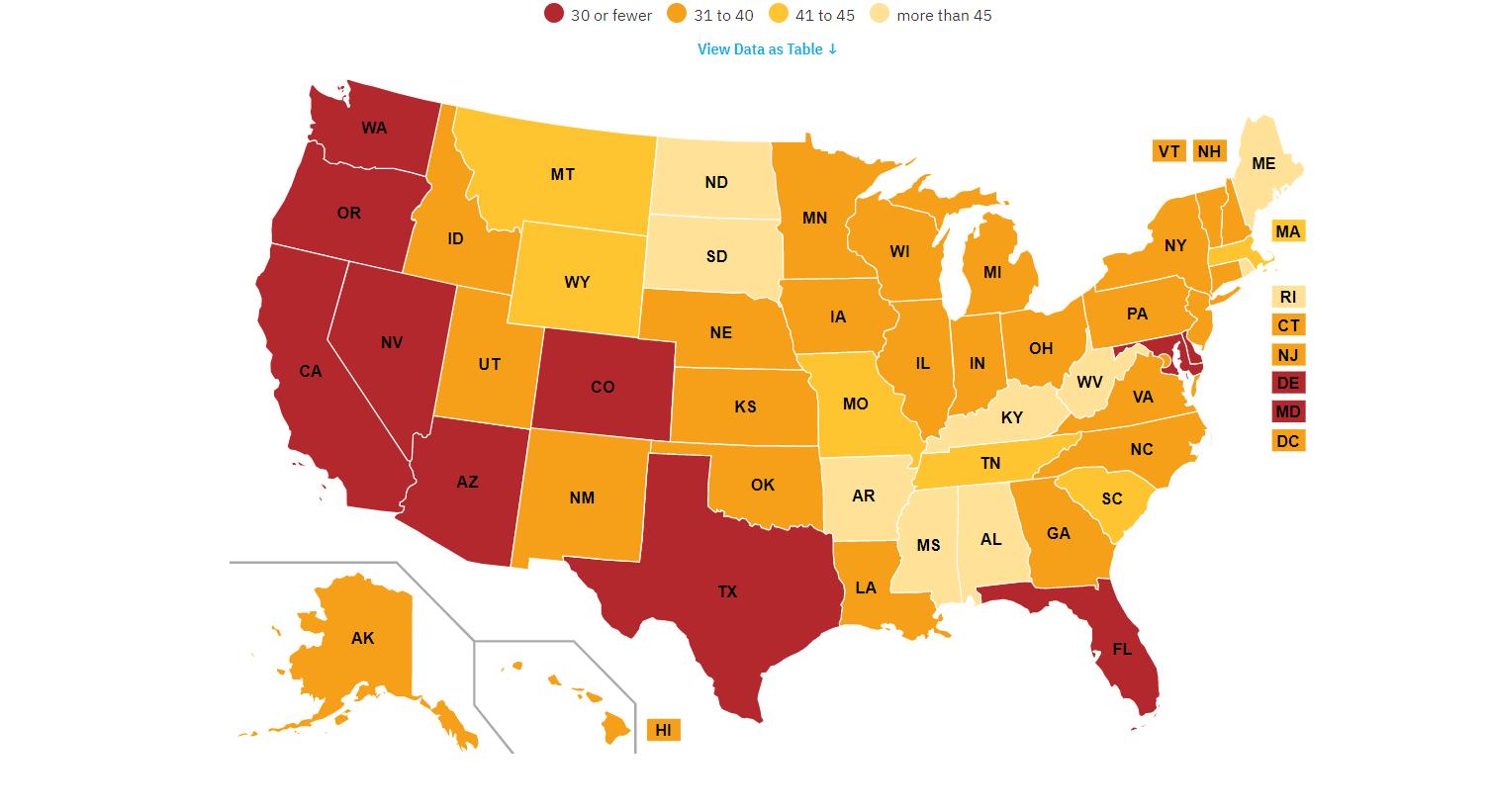In recent months, the rental market has undergone a notable transformation, marked by a downward trajectory in rental prices. Various factors, including the rise of remote work, evolving demand patterns, and financial hardships, have played a significant role in driving this trend.
In this article, we delve into the reasons behind the decline in rents, examine regional variations, and discuss the implications for landlords. Furthermore, we offer valuable insights for renters who are navigating the challenges presented by a declining rental market.
Factors Contributing to Falling Rents
Several factors have contributed to the falling rents observed in the rental market. The oversupply of rental units has been a significant factor. The completion of new apartment buildings reached a near-record high, resulting in increased competition among landlords. The higher supply of rental properties gave tenants more options to choose from, which put downward pressure on rents.
Another contributing factor is the shift in short-term rental platforms like Airbnb. With the decline in travel and tourism during the pandemic, many Airbnb hosts decided to offer their properties as long-term rentals instead. This increased the supply of available rental units, further impacting rental prices.
Additionally, changes in lifestyle and work arrangements influenced rental demand. The ability to work remotely allowed individuals and families to reevaluate their living preferences. Some opted for larger living spaces in suburban or rural areas, while others sought more affordable rentals.
These shifting dynamics affected rental prices, as areas experiencing increased demand saw rising rents, while areas with decreased demand saw falling rents.
Regional Variations in Rental Market Trends

Regional variations in rental market trends can be observed across different areas. In September, the rental market in Austin, Texas experienced the largest decline, with rental prices decreasing by 7.3% compared to the previous year. Similarly, Dallas, Portland, Orlando, and Atlanta saw significant declines in rental prices, with decreases of 6.2%, 5.4%, and 4.9%, respectively.
However, there are regions where rental prices are still on the rise. Cities such as Louisville, Kentucky, and Richmond, Virginia, witnessed an increase of 4.6% in rental prices year over year, reaching a median of $1,199 per month in September. Additionally, major metropolitan areas like New York City, Birmingham, Alabama, and Washington, D.C., experienced rental price increases of 4.5%, 4.4%, and 4.2%, respectively.
These variations in rental market trends highlight the diverse factors influencing each region. The relative affordability of the Midwest compared to other parts of the country has attracted more renters, leading to increased competition and higher rents in cities like Louisville and Richmond.
Changes in work-from-home policies may have also played a role in the rental price increases seen in major metropolitan areas, as employees return to urban centers.
Rental Affordability and Market Opportunities
The declining rental market presents opportunities for renters looking for more affordable housing options. With falling rents, individuals and families may be able to find better deals and negotiate favorable rental terms. Renters can take advantage of the increased supply of rental units and explore different neighborhoods or property types that were previously out of their budget.
Moreover, the affordability of rentals may also provide an opportunity for first-time renters or those considering a change in their living arrangements. Lower rental prices can make it easier for individuals to save money or allocate funds toward other financial goals. Renters who were previously priced out of certain areas may now find it more accessible to live in their desired locations.
Related article: How To Find Section 8 Houses For Rent With No Deposit?
Implications for Landlords and Property Owners

While falling rents may benefit renters, landlords, and property owners face challenges in maintaining profitability. Lower rental prices mean reduced rental income, which can impact cash flow and the ability to cover mortgage payments and property expenses. Landlords may need to reassess their rental strategies and make adjustments to attract tenants and remain competitive in the market.
To mitigate the impact of falling rents, landlords may consider offering incentives such as reduced security deposits, flexible lease terms, or additional amenities to attract tenants. They may also need to focus on tenant retention and provide excellent customer service to retain existing renters in a competitive market.
Rental Market Outlook and Future Predictions
Looking ahead, the rental market is expected to continue its downward slide in the near term as long as there is a healthy supply of rentals. The completion of new apartment buildings and the availability of rental units will continue to influence rental prices. However, it's important to note that the pace of rent declines may vary across different regions and submarkets.
While the rental market is currently favoring tenants, it is unlikely to see a repeat of the over-the-top rent increases witnessed in the past two years. The market dynamics have shifted, and factors such as remote work, changing lifestyle preferences, and affordability concerns will continue to shape the rental landscape.
Tips for Renters in a Declining Rental Market
Take advantage of falling rents
As rental prices decline, renters should actively search for better deals and negotiate rental terms that are more favorable to them. Don't be afraid to explore different neighborhoods or property types that were previously out of your budget.
Be prepared to move quickly
In a declining rental market, rental units can be snatched up quickly. Stay organized, have your documents ready, and be prepared to submit rental applications promptly.
Research market trends
Stay informed about rental market trends in your area. Understand which neighborhoods or regions are experiencing the most significant rent declines and focus your search in those areas.
Consider long-term leases
Landlords may be more open to offering longer lease terms in a declining rental market. If you're planning to stay in a rental property for an extended period, consider negotiating a longer lease to secure a more stable rental price.
Negotiate rental terms
With falling rents, you may have more leverage to negotiate rental terms with landlords. Ask for potential rent reductions, additional amenities, or more flexible lease terms.
Focus on value
Instead of solely focusing on the lowest rental price, consider the overall value of the rental property. Look for properties that offer desirable features, good maintenance, and responsive landlords.
Prioritize your needs
Determine your must-haves and prioritize them during your rental search. This will help you narrow down your options and make more informed decisions.
Seek professional advice
Consult with a local real estate agent or rental specialist who can provide insights into the current rental market conditions and guide you through the rental process.
Build a good rental history
Even in a declining rental market, landlords value tenants with a good rental history. Maintain a positive relationship with your current or previous landlords and ensure that you pay rent on time.
Monitor the market
Rental market conditions can change, so continue to monitor the market even after securing a rental property. Stay aware of any potential rent increases or changes in the market that may affect your rental situation.
You may also like:
Top 8 Affordable and Safe Places to Live in Connecticut
Most Affordable Places To Live In Virginia





